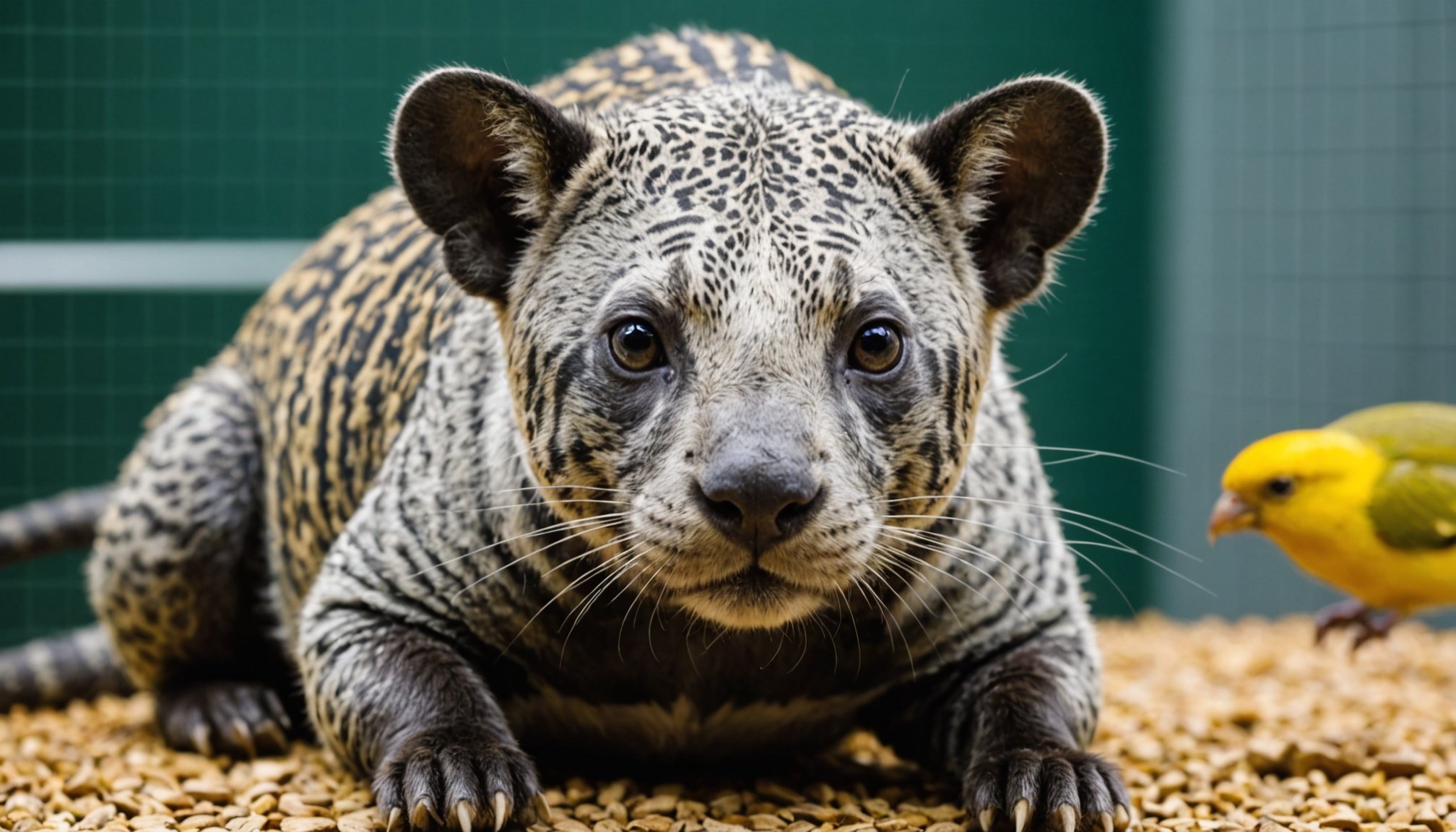Understanding Exotic Pet Health Challenges
Exotic pets, while fascinating and unique, come with distinct veterinary challenges. These challenges often arise due to the health risks associated with imported exotic pets. Diseases such as salmonella and exotic Newcastle disease, prevalent in some species, pose significant threats not only to the pet’s health but also to public health.
Many imported animal diseases can be hard to identify because symptoms in exotic pets might differ from those observed in more common pets. Additionally, the lack of veterinarians specializing in exotic pet health complicates diagnosis and treatment. This gap in expertise and knowledge can result in delayed care, aggravating the health issues faced by these animals.
This might interest you : Essential Strategies for UK Physiotherapists: Optimizing Post-Operative Care for Knee Replacement Patients
Public Health Considerations
Imported diseases aren’t merely confined to pets; they can impact humans too. Diseases transmitted through direct contact or environmental exposure pose risks, necessitating careful handling and hygiene practices. Keeping informed about these risks is crucial for both potential and current exotic pet owners.
Importance of Disease Knowledge
Knowledge about specific diseases prevalent in exotic species is vital. Understanding these risks aids in prevention and ensures that owners can make informed decisions about pet care. By recognising early signs of illness and knowing when to seek veterinary care, owners can mitigate these risks, safeguarding both their pet’s health and their own wellbeing.
Also read : Exploring Cutting-Edge Strategies by UK Allergists for Managing Adult-Onset Asthma
Diagnostic Strategies for Exotic Pets
Appropriate diagnostic methods are vital when dealing with exotic pets, as these animals often present unique challenges. Unlike traditional pets, they require distinct veterinary techniques due to their varied physiological needs.
For example, advanced imaging tools such as radiography and ultrasound are commonly employed. These play a crucial role in delivering detailed internal snapshots, allowing for precision when identifying abnormalities. Blood tests also provide valuable insights by revealing hidden infections or metabolic issues, which may otherwise go unnoticed.
Particular emphasis is placed on the importance of specialized training. Veterinarians engaging with exotic pets must pursue additional education. This ensures they are adept in the nuances of species-specific anatomy and behaviour, leading to more accurate diagnoses. Such specialization is essential in discerning diseases imported from different climates or ecosystems, requiring an understanding of conditions uncommon in local species.
Case studies reflect the success of these diagnostic strategies. Instances involving imported diseases highlight how a keen diagnostic acumen can ensure accurate identification and treatment. For example, identifying a rare parasitic infection in an imported lizard showcases the proficiency required in analyzing symptoms that deviate from the norm, underscoring the necessity for specialized expertise.
Treatment Protocols for Imported Exotic Diseases
When handling imported exotic diseases, it is crucial to establish clear treatment guidelines. These guidelines should be formulated by exotic veterinarians with expertise across diverse species. The variability in diseases found in exotic animals, such as reptiles or birds, necessitates the use of evidence-based methods. This helps veterinarians tailor precise strategies for treatment. A one-size-fits-all approach rarely works due to the unique physiological and environmental needs of each species.
The importance of crafting individualized treatment plans cannot be overstated. For instance, what effectively treats a parrot may not work for a snake. Accordingly, treatment methodologies should take into account the specific health requirements and species-specific disease manifestations. This strategy increases the likelihood of effective disease management.
Additionally, evaluating treatment efficacy through case studies is integral in assessing outcomes and refining these personalized methods. Successful interventions are often documented in clinical settings, which provide valuable insights for treating similar conditions in the future. Therefore, staying abreast with emerging research and case studies assists veterinarians in enhancing their treatment protocols further.
This systematic approach not only ensures better care but also fosters animal health and well-being.
Preventive Health Measures for Imported Pets
The influx of imported pets, particularly exotic ones, requires stringent preventive care to ensure their health and well-being. The cornerstone of this care involves strict health protocols, starting with recommended vaccinations and thorough health screenings upon arrival. These vaccinations and screenings help in detecting any potential diseases that could pose risks, both to the pet and their new environment.
Regular check-ups are paramount, serving as a key component in detecting early signs of disease. These appointments help monitor the pets’ overall health and ensure any anomalies are spotted promptly. Early detection often leads to more effective treatment and better outcomes, reducing the risk of long-term health complications.
Exotic pet management is another vital aspect. Due to their unique nature, these pets often require specialized care tailored to their specific needs. Collaborating closely with pet owners is crucial to ensure they adhere to these health measures. Providing education and resources empowers owners to maintain health protocols, create a safe living environment, and ultimately, safeguard their pets’ health.
Preventive care is not just about addressing issues as they arise; it is about being proactive in ensuring a healthier life for imported pets.
Veterinary Resources and Continuing Education
Veterinary professionals focusing on exotic pets have access to a diverse array of veterinary education resources. Staying informed on the latest in exotic animal diseases and treatments is crucial, given the constant evolvement of veterinary medicine. This ensures optimal care for animals that don’t fall under traditional pet categories like dogs or cats.
Exotic animal resources are essential in equipping veterinarians with the knowledge required for such unique patients. These resources include specialized courses, journals, and conferences that highlight advancements in diagnostics, treatment methods, and animal husbandry standards. Engagement with these materials helps veterinary experts remain at the forefront of their field.
Continuing Professional Development (CPD) is a vital aspect of a veterinarian’s career, especially within the niche of exotic pets. CPD initiatives provide opportunities not only to learn but also to network with like-minded professionals. They support veterinarians in honing their skills and exchanging information about novel techniques or groundbreaking research.
Moreover, involvement in the exotic animal community fosters valuable connections, creating a platform for sharing experiences, challenges, and successes. Regular participation in such education and networking activities is indispensable for those committed to the well-being of exotic creatures.
Legal and Regulatory Considerations in the UK
In the UK, exotic pet legislation is an intricate web of rules governing the importation and care of non-native species. The law aims to protect local ecosystems and maintain public safety by ensuring that all exotic animals are properly assessed before entering the country. Veterinarians play a critical role in this process, tasked with managing potential health risks associated with these animals.
UK veterinary law empowers vets to report and address imported diseases, safeguarding public and animal health. They hold the responsibility to notify authorities if they suspect any zoonotic diseases in exotic pets, thereby preventing outbreaks. Awareness of animal health regulations ensures responsible pet ownership and compliance with the law, thus averting potential legal issues.
Understanding the legal implications of treating exotic pets requires staying informed about updates in the law. Resources such as government websites and professional veterinary organisations offer guidance on UK veterinary law and exotic pet legislation. They provide valuable insights into best practices, whether it’s the management of imported diseases or the handling of regulatory requirements. By staying informed, veterinarians and pet owners can foster a healthy environment for both people and animals.
Collaborating with Exotic Pet Owners
Exploring ways to build a harmonious relationship with exotic pet owners starts with effective client communication. Understanding and addressing their unique concerns is crucial for sustainable cooperation. Communicate clearly about health risks specific to their exotic pets to ensure informed decisions.
Incorporating pet owner education into every interaction aids in highlighting the importance of preventive measures. This involves teaching owners how to recognize the early signs of disease, which can significantly enhance the well-being of their pets. For instance, rather than waiting for symptoms to escalate, owners should be aware of the specific cues related to their animal species that might signal health issues.
Strengthening owner collaboration can be achieved by fostering a trust-filled environment, where owners feel valued and heard. Regular discussions about their pet’s health, routines, and any changes encountered can enhance this trust. Furthermore, provide educational resources and follow-up consultations to support them in monitoring and caring for their pets.
Ultimately, by establishing a collaborative partnership with exotic pet owners, it is possible to ensure optimal care and address the unique challenges posed by each species. Encouraging open dialogues and providing access to expert advice can make a significant difference in the life of an exotic pet.











